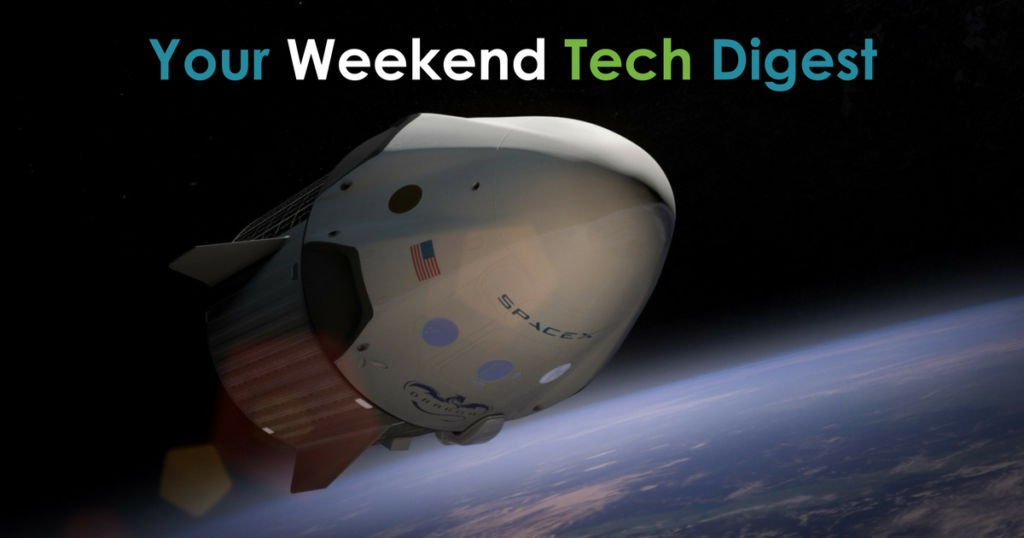By Tian DuBelko

We round up the trending stories every week so you can catch up on the top tech news. This week, a ransomware hit computer systems globally, Google held its annual I/O developer conference, the FCC voted to dismantle Net Neutrality, and SpaceX launched its heaviest rocket yet. Get your weekly recap here, then head over to our blog for more stories.
More than 200,000 people have been attacked by the Malware WannaCry. Supposedly based on leaked NSA tools, WannaCry has hit dozens of countries and users. When attacked, a message from WannaCry pops up on users’ systems, demanding several hundred dollars in bitcoin currency. The instructions tell victims how to pay to recover their system’s files, which has been encrypted by the ransomware, hence its name.
Google just held its annual developer conference where the tech giant made some big announcements. Besides unveiling products such as Google Lens, the company’s foray into Augmented Reality, Google also revealed a new Google Assistant that will likely compete with Amazon’s Alexa. Google also promised to delete 1-star Apps with bad reviews to improve their user experience.
In a 2-1 vote, the FCC voted this week to begin the process of gutting the Net Neutrality rules that the agency adopted in 2015. These rules protected users, as Internet service providers (ISPs) could not throttle content users wanted to access, nor could ISPs accept payment to prioritize data for some users. If Net Neutrality goes away, then the Internet might become a heavily regulated place where only the really rich can search for what they want.
SpaceX just launched its heaviest payload ever on a Falcon 9 rocket. A payload from the communications satellite company Inmarsat rode aboard the rocket. And this is the fourth rocket in a series created to provide “high-bandwidth broadband internet” worldwide. Since the rocket was so heavy, SpaceX didn’t attempt to recover the first stage of the rocket, something that the spaceflight company has made headlines for in the past.